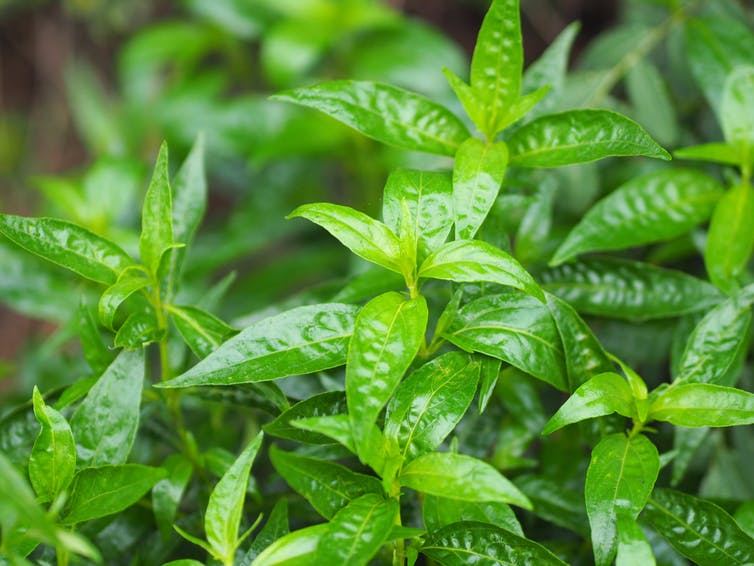The news that inmates in Thailand are being handed capsules of a herbal medicine called green chiretta (Andrographis paniculata) to treat asymptomatic and mild COVID is unlikely to come as a surprise to the average Thai citizen.
In Thailand, healthcare professionals and the public alike are familiar with green chiretta – nicknamed the “king of bitters” – which is as popular as paracetamol for treating cold and flu.
In 1991, researchers at Mahidol University in Bangkok, Thailand, concluded after a clinical trial that chiretta (6g a day) was as effective as paracetamol (4g a day) at relieving fever and sore throat in patients with inflammation of the pharynx and tonsils (pharyngotonsillitis). Since then, several reviews have found that chiretta may be more effective than placebo at treating uncomplicated upper respiratory tract infections. Reported side-effects tend to be mild and short-lived.

pakn/Shutterstock
In line with a global trend to use cold and flu medicines to ease the symptoms of mild COVID, and in face of an emergency situation, the Thai Corrections Department gave the herbal remedy to 11,800 inmates with mild symptoms of upper respiratory infections and now claims that 99% of them recovered, prompting the Thai Ministry of Higher Education, Science, Research and Innovation to recommend that asymptomatic patients take 180mg of chiretta a day, divided into three doses at mealtimes.
As far as we know, full data for this intervention has not been released to the international scientific community and details of the study are sparse. For example, we don’t know if there was a control group (a group that received a placebo or different treatment for comparison), and, if so, whether inmates were randomly assigned to one group or the other.
This type of “randomised, controlled trial” is the gold standard for clinical research. Especially if it is “double blind”, that is, neither the participants nor the researchers know who received the new drug and who received the placebo. This removes conscious and unconscious biases from the study.
In addition, the recovery rates from COVID are extremely difficult to calculate and only meaningful if the subjects are first diagnosed with a validated SARS-CoV-2 test. By way of comparison, the recovery rates announced by Thai officials are somewhat higher than overall COVID recovery rates in India (32%-83%) or Australia(96% recovered after 120 days).
In a review of herbal medicines that might be beneficial for treating COVID, chiretta was considered “promising” when weighing up risks and benefits. It contains an active compound called andrographolide. Purified andrographolide was hailed as moderately effective at inhibiting SARS-CoV-2 replication according to a laboratory test. And a recent computer simulation showed that it may bind (attach) well to the spike protein on the coronavirus (the spike protein is the part of the coronavirus that latches on to human cells to gain entry to them). But whether these experiments translate into real-world benefit can only be proven with a well-designed clinical trial.
More evidence soon
Fortunately, such studies are in the pipeline. In Thailand, a randomised controlled trial with just over 3,000 participants is comparing chiretta extract (containing 20mg of andrographolide per capsule, for a total of 180mg per day, dosing into three capsules taken before each meal for five days) with “standard care” in people with asymptomatic COVID. The main outcome the researchers are investigating is how many people in each group end up in hospital within 28 days of a positive coronavirus test. The trial is expected to be complete in May 2022.
A small trial at Tbilisi State Medical University in Georgia is testing a combination of chiretta and Siberian ginseng extract for treating mild COVID symptoms. The results are also expected in early 2022.
The king of bitters is being given serious consideration as a candidate to fight COVID, but we’ll need to wait a few months to know if it fulfils its potential.
![]()
Jose Prieto Garcia does not work for, consult, own shares in or receive funding from any company or organisation that would benefit from this article, and has disclosed no relevant affiliations beyond their academic appointment.

























